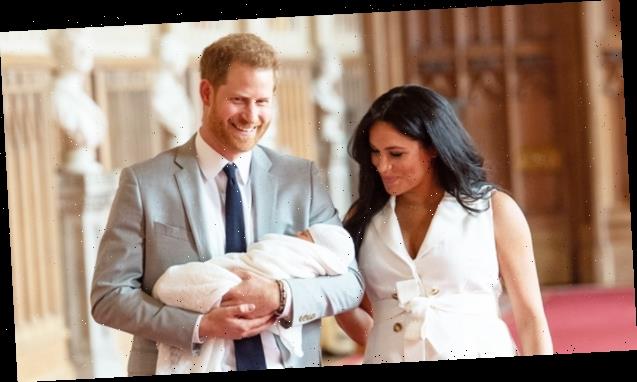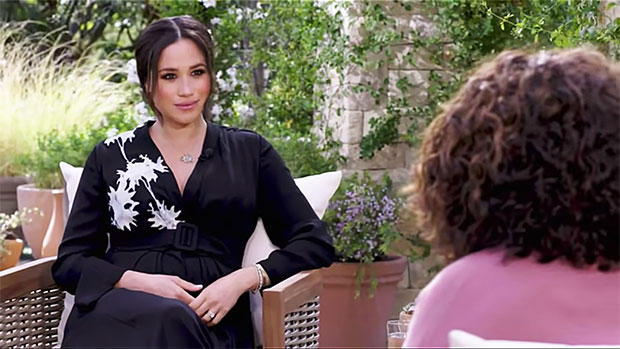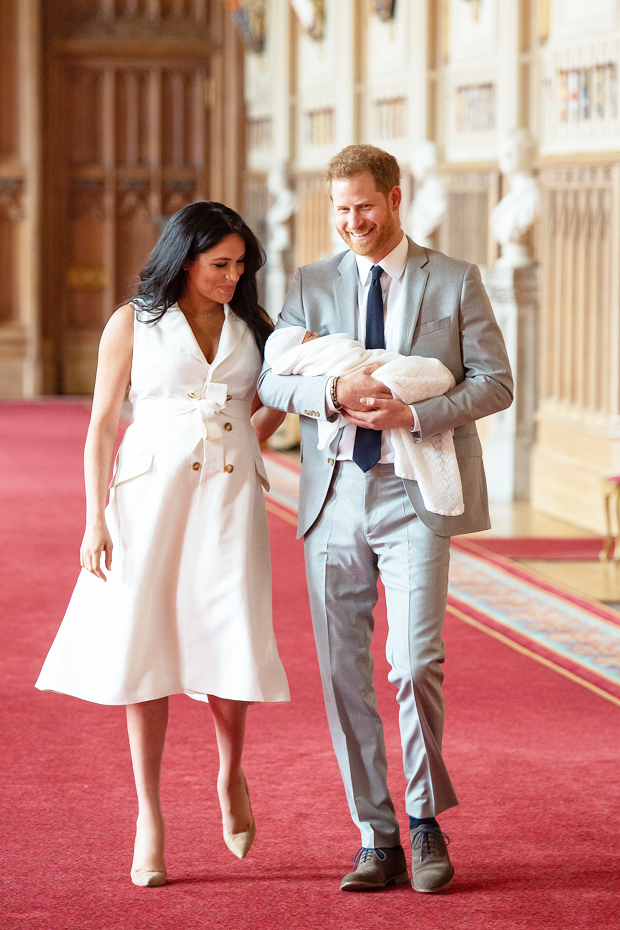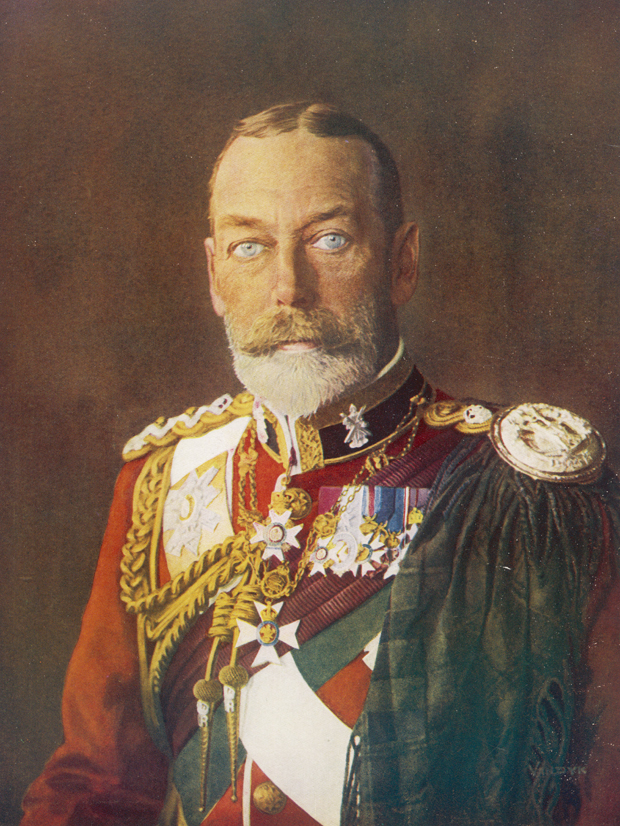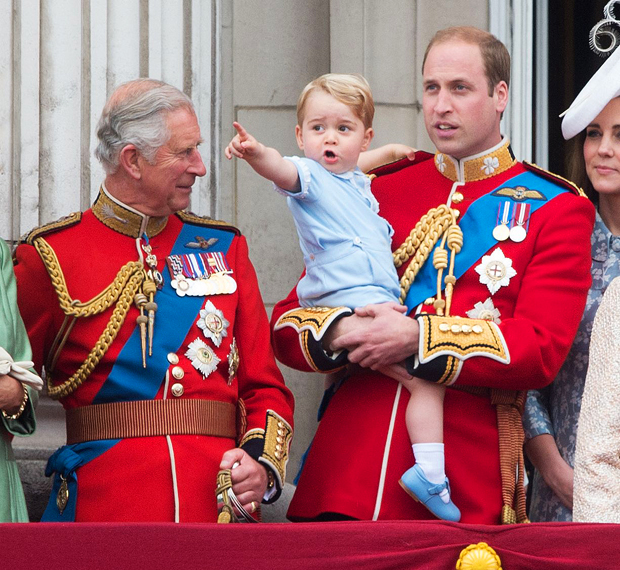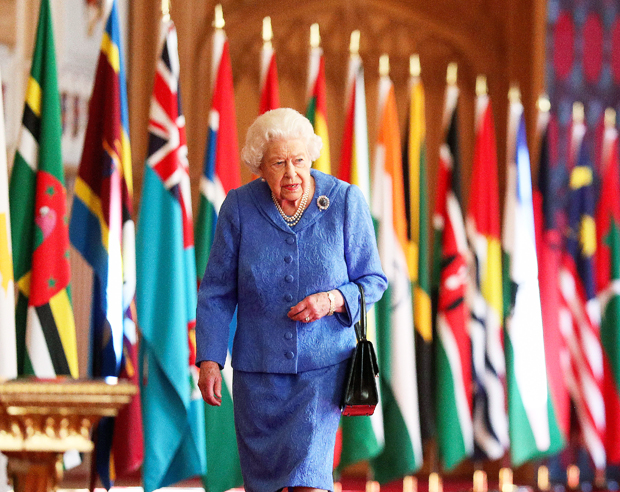A royal expert is revealing why none of Prince Harry’s kids will be HRH, Prince or Princess, saying that it’s thanks to an old rule, not because of their race.
Prince Harry and Meghan Markle’s son Archie’s royal status – or lack thereof – was a hot topic during the couple’s primetime interview with Oprah Winfrey on March 7. During the CBS special, the 39-year-old Duchess of Sussex alleged that when she was pregnant with her first child, her royal in-laws “didn’t want him to be a prince.” Saying that this “would be different from protocol,” she went on to tell a shocked Oprah that the family also told her the baby “wasn’t going to receive security.”
Meghan also noted that her child would be “the first member of color” in the royal family and would not be “titled in the same way that [the] other grandchildren would be.”
But historian Marlene Koenig says that Meghan and Harry can thank the Queen’s late grandfather, King George V, for Archie’s lack of title. “This is not a racial issue,” the expert on British and European royalty tells HollywoodLife. “Meghan tried to make it that, but [it] wasn’t. Press coverage, yes, but not the issue about Archie, because that has been long planned.”
According to Marlene, George V determined Archie’s status in his 1917 Letters Patent, which is a fancy way of describing a document that the sovereign issues. “It’s a way to inform. It’s not a law,” Marlene says. “It’s just a document, because the sovereign is known as the fount of all honors. The succession to the throne is through legislation. Titles come from the sovereign.”
Queen Elizabeth herself has issued Letters Patents. For example in 1996, after the divorces of Prince Charles and Princess Diana, and Prince Andrew and Sarah Ferguson, “the Queen issued a Letters Patent that states that former wives of spouses who are royal highnesses, lose the HRH” aka, Her Royal Highness.
Marlene believes that George V issued his own Letters Patent about titles in 1917 because he wanted to “limit the number of royals, or rather the generations.” “When he got married and had his first children – including the future Edward VIII, Duke of Windsor – they were great-grandchildren of Queen Victoria. That was in 1894 [when Edward VIII was born]. We would not have that [scenario] again until 2013 when Prince George was born,” she says. (Of course, George, like Archie, is the Queen’s great-grandson.)
In 1917 George V crafted a Letters Patent that declared, “The grandchildren of the sons of any such sovereign in the direct male line (save only the eldest living son of the eldest living son of the Prince of Wales) shall have and enjoy in all occasions the style and title enjoyed by the children of dukes of this realm.”
Simply put, that rule meant that the only grandchild of Prince Charles who would be considered royal would be Prince William’s first male child. (In other words, had this rule stayed in place, even William’s daughter Charlotte, and son Louis, would not be a Prince or Princess.)
But in January 2013, months before Prince George was born, the Queen issued another Letters Patent amending the 1917 one declaring that all of Prince William and Kate Middleton’s children – whatever their gender – would be a Prince or Princess.
“Now, if Harry’s children were to be royal at birth, it would have happened then,” Marlene says. “It would have said, ‘All children of all the sons of the Prince of Wales.’ It didn’t. So, that’s not a snub.” In other words this rule was in place, long before Prince Harry met Meghan and would have been the case whatever Meghan’s race. (However, when he becomes king, Prince Charles can give the Sussexes’ children royal titles.)
As for the issue of security, Marlene concedes that the two issues are tied, because protection is offered to working royals only. “You have to remember that there has been for years criticism of the cost of security of royal events and royal folks,” she says, pointing out that Prince Andrew’s daughters Princesses Beatrice and Eugenie lost their 24-hour protection years ago due to budget cuts.
“As a child, he’s with his parents, he’s going to certainly be protected by those who guard his parents,” Marlene says, referring to the protection that Archie would have received at the time of his May 2018 birth when both of his parents were working royals.
Sadly that is no longer the case as the Duke and Duchess of Sussex have now stepped down as senior royals and working members of the monarchy.
While Marlene doesn’t believe that Archie’s lack of royal status is a racial issue, she does believe that the Windsors have a problem in that area. “[They] do need to address the issue of racism,” she says. Her comments come on the heels of Meghan and Harry telling Oprah that a member of the family discussed “how dark” Archie’s skin would be.
“It’s something they are going to have to confront as a family, as an organization,” she says. “And people just have to step back and listen to some things that Meghan said.”
Source: Read Full Article
